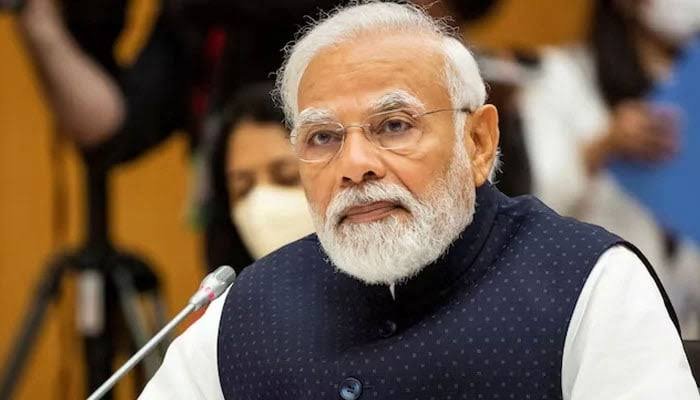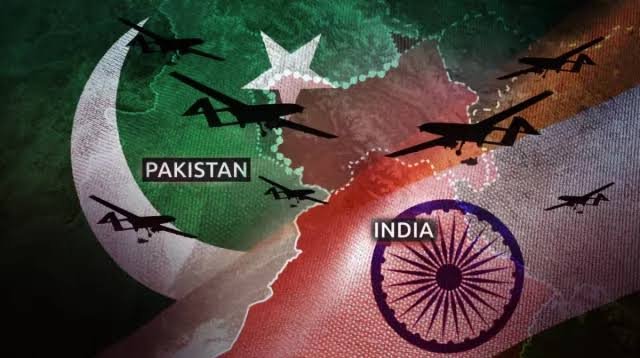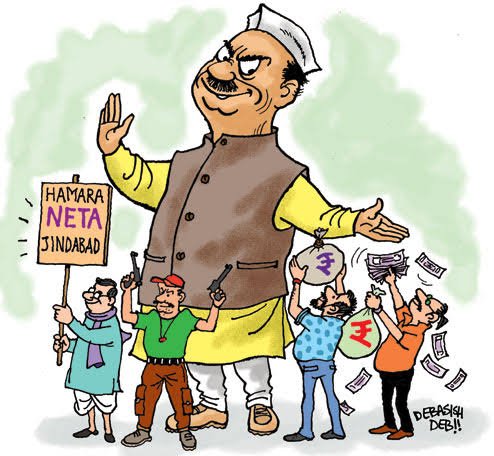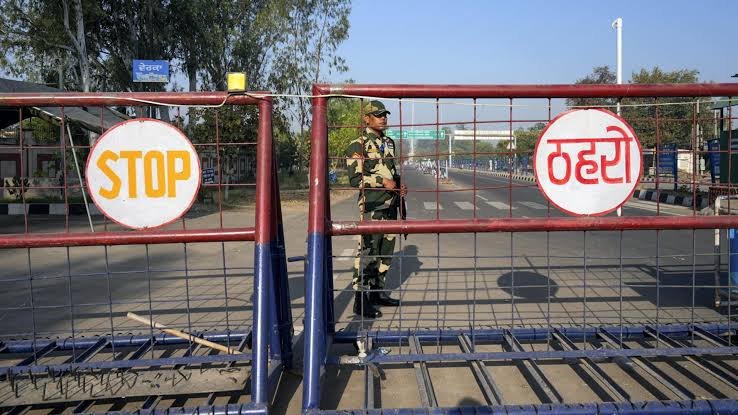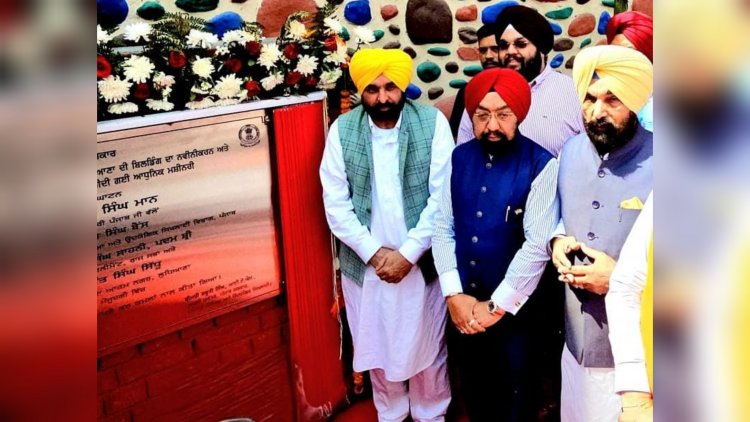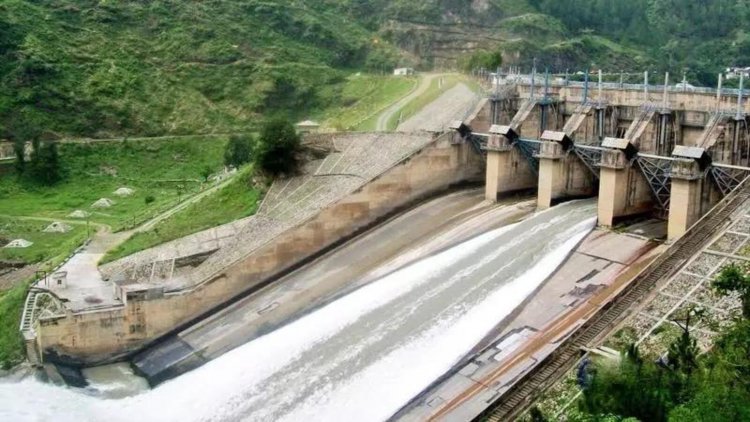
New types of objections and new types of division are being raised on the parts of water distribution. The question of river water distribution has been going through various crises historically. Instead of resolving its complexities, it is being confused. Although all the political parties of Punjab are united in saying that we will not give even a drop of water, but these are the parties whose political, constitutional and legal positions taken at different times are not resolving the water issue. Re-understanding the internal differences and forming a correct perspective is the urgent need of the present time.
Identifying the river water disputes of Punjab is deeply linked to the fate and fate of Punjab along with the center-state relations. The long-standing disputes over the river waters of Punjab have continuously affected its politics, society and economy. In all this, the central and various state governments have complicated the issues of river waters from the perspective of their respective political interests. Along with this, there have been continuous ups and downs in the politics of Punjab, due to which Punjab has had to face many tragedies. History is a witness to this that blood often flows in the war over water, as now with the cancellation of the Indus Water Treaty, the situation in the relations between India and Pakistan has become tense. Similarly, the politics of Punjab and Haryana on river issues in the states within India has been going through many turns, which has again given rise to crises. The legal, political, economic and social questions in this have been examined by many experts from different documents, historical documents of treaties/agreements made at different times, the gaps left in them and the basic points given for the new type of water distribution. Professor Kuldeep Singh (Former Professor of Political Science, Guru Nanak Dev University, Amritsar) has done valuable work on water from the perspective of historiography in his book ‘Punjab River Waters Dispute in South Asia’. His work is extremely relevant in the current context, how attempts are made to resolve the issue of rivers by moving away from riparian principles. In fact, this makes the problem even more complex. The central and state governments have done a confusing job by not giving any place to the central perspective of riparian rights in the Constitution, instead of resolving the issue in the right context. Along with this, the period of mutual political competition between different major political parties on the issue of river waters has created tragedies instead of resolving this issue. Farmers become a big vote bank for the vote politics of different political parties, to bring them under their influence, they have done the politics of being the protectors of farmers on the issue of waters. Now, by keeping the ongoing dispute regarding the management of BBMB at the center, a new kind of political narrative is being created which will not make any major contribution in resolving the river water issue in the future. The decisions of various courts that have been influencing the politics of Punjab have also created new controversies on the issue of river water, the relationship between the center and the state, and even on the issue of federalism. As a result, the relations between the states have soured.
Dividing the river water disputes into the period from 1947 to 1979, political thinker Prof. Kuldeep Singh is of the opinion that attempts have been made to resolve the issue of water sharing in the Indian state by moving it away from international riparian rights. Along with this, the issue of river water was centralised. When Punjab, Haryana and Himachal Pradesh were divided in 1966, the issue of river water sharing became even more complicated. The central notification and the politics of the Indira Gandhi Award in 1976 pushed it towards a new tragedy. When its scope was expanded to three parties in 1981, the SYL Canal Roko movement started spreading rapidly in Punjab, which gave rise to political and religious crises and disputes. The Rajiv Longonwal Agreement, the Iradi Tribunal Report, the Termination Act 2004, the Property Bill 2016, etc. have complicated the issue of river waters from different perspectives. In fact, the mistakes made in the past, political competition and the established politics of Punjab, which is supposed to be the protector of the interests of farmers, have put this issue in conflict with the central government from their respective perspectives. All these points have been explored in the complexities of the Constitution of India, the problems of the law made on the issue of inter-state waters and its implementation, as well as the layers of various research works done on the water disputes of Punjab and Haryana. Along with this, the issue of water in Punjab has been repeatedly mentioned by various political parties in their respective election manifestos. The author writes that the methods adopted to deal with this question during the tragic period of Punjab and their impact on the politics of the Centre and Punjab have already put Punjab in crisis. By examining all aspects of the riparian theory and drawing on the research work of many personalities like Pal Singh Dhillon to the results of the research of Ramasuwa C.R. Iyer, the author has shown that solutions that deviate from the basic flow of rivers and are only taken from the perspective of politics will give rise to new crises. The tripartite agreement between Punjab, Haryana and Rajasthan under the Centre’s politics in the year 1981 has led to aThe question of water resources played a role in making it an important question in Punjab politics. In fact, Rajasthan was neither a riparian state nor a state carved out of Punjab. The political storm over the issue of sharing river waters gave rise to a new upsurge in Sikh politics. The Punjab Termination of Agreements Bill in 2004 and the subsequent Transfer of Property Bill 2016 regarding the return of farmers’ land further complicated the already ongoing question of river waters. Even with the formation of the AAP government in 2022, no step was taken in this direction. However, the decades-old saying ‘we will not give a single drop of water’ has become the favorite line of every political party. Now that the water has passed over the head, the situation has reached the point of politics of installing locks on the flow of rivers.
The laws and tribunals made regarding inter-state disputes on the issue of water have also not played any meaningful role in treating this painful vein of Punjab. Due to this, the river water disputes have only given rise to political upheavals in Punjab. The possibility of solving this complex question through each special session in the near future is also very small because the riparian principle on the question of river waters has not yet become a part of the thinking of a large section of the people and the political parties of the Centre and various states. Any decision taken on this issue only makes the farmers of Punjab dissatisfied. It is also a fact that the river water dispute continuously creates a sense of anger among the farmers. In view of historical documents and references, there is an urgent need for a meaningful thinking process as well as political will to adopt the right approach towards the river water disputes. The water sources in Punjab are drying up due to which many blocks have already reached the point of almost running out of groundwater. In the future, many cities may also fall into this trap. Along with the vision of international laws, federal arrangements, inter-state political conflicts and desires, the questions of Punjab’s agriculture and the foundation of its economy also need to be included in the intricate web of the question of Punjab’s river waters. Chanting slogans of calling ourselves the custodians of Punjab’s waters will not benefit Punjab. Therefore, concrete steps need to be taken.



